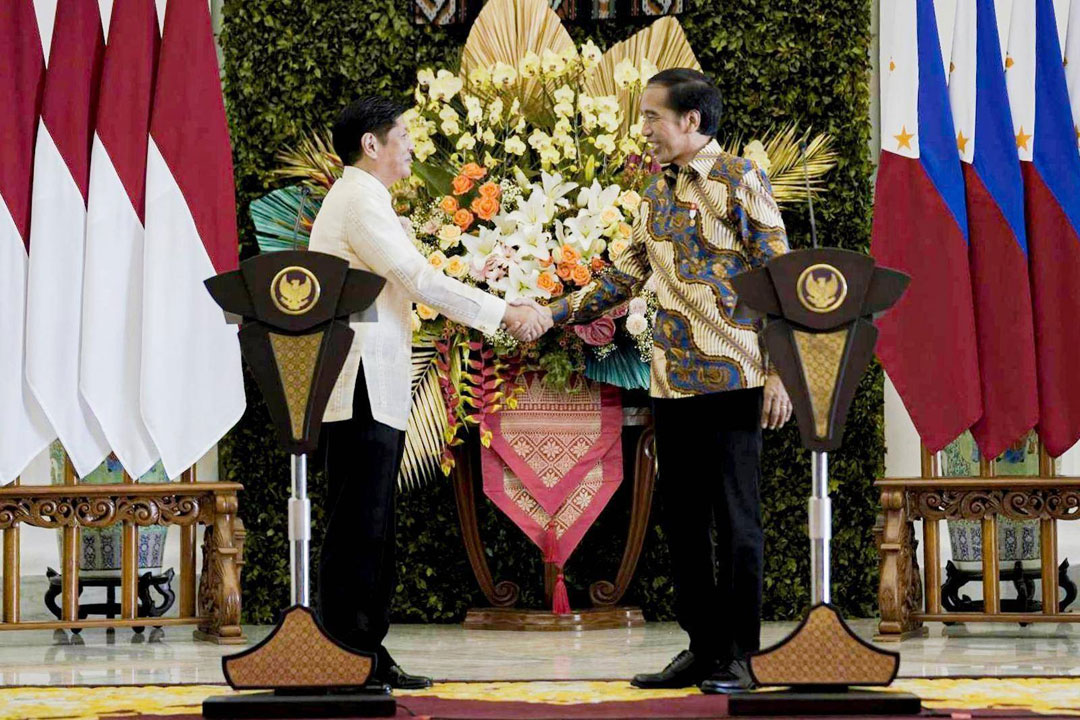Philippines told to accept Indonesia pitch for military aircraft agreement

By Beatriz Marie D. Cruz, Reporter
THE PHILIPPINES should take Indonesia’s offer to sell anti-submarine aircraft as a deterrent amid worsening tensions with China, a congressman said at the weekend.
“Offhand, the Philippine Navy could use the aircraft to defend against possible submarine attacks,” Surigao del Sur Rep. Johnny T. Pimentel said in a statement.
“We have to build up the capability of our armed forces to conduct naval warfare using a combination of surface ships, submarines and aircraft, to fully secure the integrity of the national territory,” he added.
The lawmaker noted that as an archipelagic state, the Philippines is most vulnerable to potential foreign incursions by sea.
“In the future, we are counting on submarine patrol operations to effectively deter such external threats,” he added.
Mr. Pimentel has filed a bill that seeks to put up naval forward-operating bases to protect gas and oil reserves within the country’s exclusive economic zone in the South China Sea that “are absolutely needed to assure the country’s long-term energy security.”
He also filed another measure that seeks to develop the 37.2-hectare Pag-asa Island — the largest Philippine-occupied landmass at the northeastern section of the disputed Spratly Islands — into a recreational fishing tourist destination.
Indonesian President Joko Widodo during a visit to Manila last month asked Philippine President Ferdinand R. Marcos, Jr. to buy anti-submarine warfare aircraft from his country.
The two leaders met amid heightened tensions between the Philippines and China. The Chinese Coast Guard on several occasions last year fired water cannons at Philippine ships trying to deliver food and other supplies to an outpost at Second Thomas Shoal.
“Indonesia’s offer of anti-submarine warfare aircraft to the Philippines will push the extra mile in the realization of naval diplomacy from friends in the Association of Southeast Asian Nations (ASEAN),” Chester B. Cabalza, founding president of Manila-based International Development and Security Cooperation, said in a Facebook Messenger chat.
Hansley A. Juliano, who teaches political science at the Ateneo De Manila University, said it is high time for the Philippines to invest in naval and aerial equipment amid increasing tensions with China.
“Any technical, educational, strategic and doctrinal support should be considered by the Philippine government especially when it comes from allies who share our maritime security concerns,” he said via Messenger chat.
The government should study the deal with Indonesia to ensure the Philippines could handle the costs, he said. “The practical question here would be the nature of support.”
“Is Indonesia making it for us? Is it offloading current equipment to us so they can instead upgrade (essentially hand me downs)? Is Indonesia instead brokering it to us via another partner (say the UK or the EU)?” he asked.
The Philippine military last year said it would deploy anti-submarine aircraft in the South China Sea, including two choppers from the United Kingdom, as it faced increasing threats from Chinese ships.
Military chief Romeo S. Brawner, Jr. in October said the British AgustaWestland 159 Wildcat chopper has a torpedo that can hit any submarine illegally entering Philippine territorial waters.
The Philippines is expected to procure four more anti-submarine aircraft.
The Armed Forces of the Philippines (AFP) modernization program has about P50 billion in programmed and unprogrammed funds under this year’s P5.768-trillion national budget, Mr. Pimentel said.



